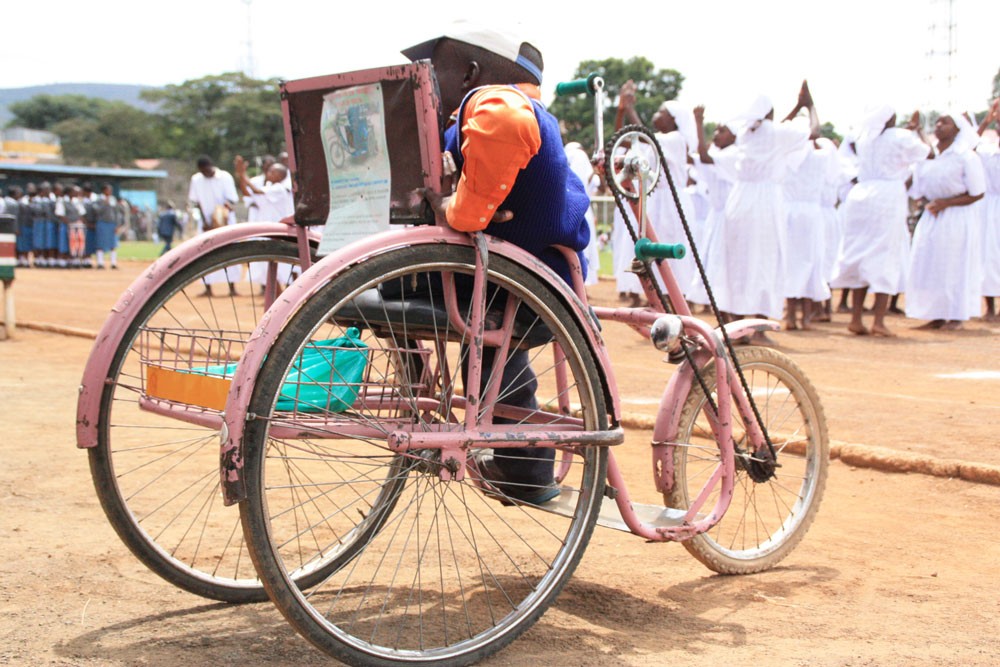Nakuru persons of disabilities push for own media programmes

A person with disability in the streets of Nakuru. Persons with disability in the county want media houses to develop programmes that target them directly.
In a recent Development Through Media public forum in Nakuru, it came out that people living with disabilities in the area are not considered when media organisations produce programmes for the public. The deliberations touched on the marginalised people and the media content that the media houses are providing.
These are part of the issues that the persons with disabilities in Nakuru want addressed – equity as well as access to the media and direct relevancy of the media programmes and content to them.
“We want media houses to run programmes on discrimination against persons with disabilities. We want programmes on property rights,”Wangui Ndegwa a 60-year-old mother of three who is blind told DTM.
“We want programmes linking devolution to disability,” added 36-year-old Stephen Ogutu who walks on crutches.
In the forum organised by DTM to discuss gender mainstreaming in governance, dubbed radio baraza also discussed gender representation in the media.
The persons with disabilities raised the concerns that media houses were not doing enough to highlight issues affecting them.
“We want programmes on gender and disability mainstreaming and the challenges that persons with disability face,” said Mr Ogutu who is commonly referred to as Obama.
“We want to know how many media houses have employed persons with disability,” he added.
Article 54 of the Constitution states that “a person with disability is entitled to to reasonable access to all places, public transport and information; to use sign language, braille or other appropriate means of communication; and to access materials and devices to overcome constraints arising from the person’s disability”.
The law is also clear on access to opportunities including job opportunities to persons with disabilities. While it advocates an affirmative action towards their representation in all institutions of governance including county assemblies and the National Assembly it promotes for their special consideration in the issuance of government contacts and tenders.
“The State shall ensure the progressive implementation of the principle that at least five per cent of the members of the public in elective and appointive bodies are persons with disabilities,” states Article 54 further states.
These according to Mr Ogutu are partly the issues that should form the content of the media programmes on persons with disabilities.
“The programmes should be about the opportunities that we have in the Constitution like on nominations,” he said “Are the media houses disability friendly?”
Adding on the content Wangui said the media programmes should also be on “how people with disability are treated by the society.”
“Sometimes we are unable to express ourselves and we are left aside even in our homes.”
Although there have been major campaigns on mainstreaming disability, most institutions have not done much in creating the right environment for persons with disability. For instance most buildings including hotels are still not accessible to them.
Peter Oluoch, 40, who uses a wheelchair, says it is even important for the media to highlight conditions of the houses they live in.
“The places we live in were built a long time ago and are not disability friendly,” said the father of three who resides in Paul Machanga Estate.
“They should identify issues of disability and push for us (sic) so that we even pay disability friendly rent,” he added.
The media has a responsibility in shaping the right agenda on issues to do with the rights of persons living with disability. But whether that will be achieved is another story altogether.
“Today persons with disabilities are learned just like other people. We need structures that are disability friendly,” concludes Wangui Ndegwa.

